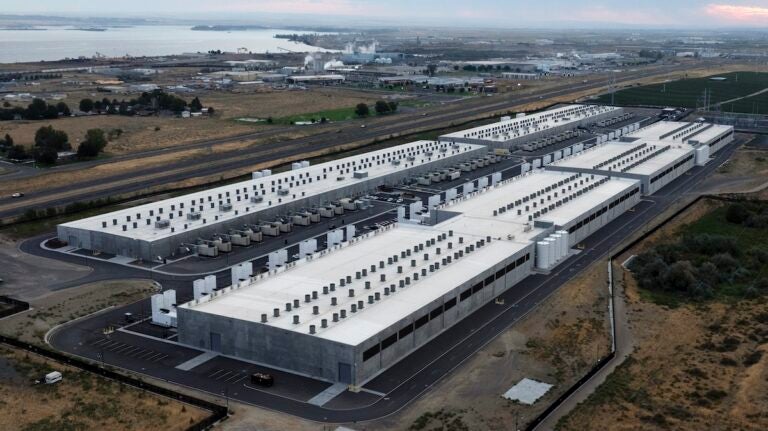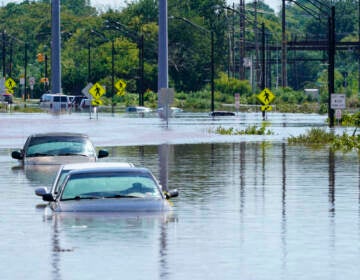Should we welcome AI data centers?
Tech companies are building huge data centers to power their AI supercomputers that use enormous amounts of energy. What does this mean for consumers and the environment?
Listen 52:01
Amazon Web Services data center is seen on Thursday, Aug. 22, 2024, in Boardman, Ore. (AP Photo/Jenny Kane)
With the artificial intelligence boom, tech companies are rushing to build data centers to power their supercomputers. And they are coming to our region.
A few weeks ago, President Donald Trump was in Pennsylvania, alongside U.S. Sen. Dave McCormick and Gov. Josh Shapiro, to highlight a $90 million AI investment in the commonwealth from companies including Google, Amazon, and Blackstone.
Proponents argue the data centers will bring money and jobs to states and see this as an opportunity for Pennsylvania to become an artificial intelligence hub.
Detractors point out these centers use enormous amounts of energy. Every time we use tools like Chat-GPT, supercomputer servers kick into gear. Experts predict that by 2028, AI will use 12% of all U.S. electricity, putting more strain on our overworked power grids.
Consumers are already seeing their electricity costs increase from data center competing power demands. In Philadelphia, the average electric bill is up $17. Along with creeping energy costs, there are serious environmental concerns. Efforts to get off of greenhouse gas producing fossil fuels, which warm the planet, are being shelved. The Trump administration has rolled back most renewable energy incentives.
This episode, inside an AI data center – how do they work? What kind of economic opportunity and jobs could materialize? Is there a way to make the energy usage more efficient? Bottom line: Should regions be rolling out the welcome mat or rolling it up?
Guests:
Benjamin Lee, professor of electrical and systems engineering at the University of Pennsylvania
Cade Metz, technology correspondent with The New York Times
WHYY is your source for fact-based, in-depth journalism and information. As a nonprofit organization, we rely on financial support from readers like you. Please give today.






